Children Spending

What are the best practices for teaching children about money management and savings ?
Teaching children about money management and savings is an essential life skill that can help them develop good financial habits. Here are some best practices for teaching children about money management: 1. Start early: Even toddlers can understand basic concepts like saving and spending. Use everyday opportunities to talk about money and its value. 2. Lead by example: Children learn by example, so it's important to model good financial habits yourself. Show them how you budget, save, and make decisions about spending. 3. Use allowances wisely: Giving your child an allowance is a great way to teach them about money management. Encourage saving, teach spending, and introduce giving as part of their allowance. 4. Play money games: Board games and online games can be fun and educational at the same time. Some popular ones include Monopoly, The Game of Life, and PiggyBot. 5. Involve them in family finances: Involving your children in family finances can help them understand the real-world implications of money management. Have them help you create a budget, go grocery shopping with you, and talk to them about bills and expenses. Remember to be patient, consistent, and positive when teaching children about money management and savings. With these best practices, your child will develop good financial habits that will serve them well throughout their life.
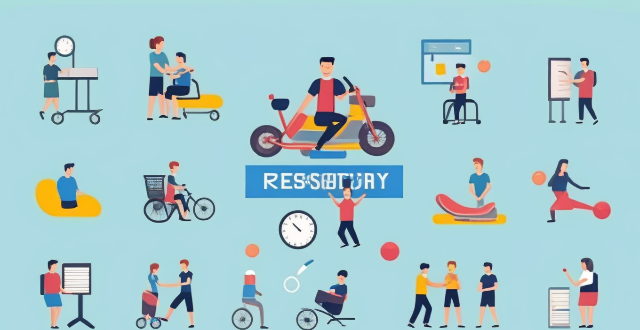
How do economic recessions and downturns affect consumer spending on sports-related activities and products ?
Economic recessions significantly impact consumer spending on sports-related activities and products, affecting various aspects of the industry. Reduced disposable income leads to budget cuts and prioritization of basic needs over leisure activities. Changes in consumer behavior include seeking value-oriented options and DIY approaches to sports participation. Decreased ticket sales, cancellations/rescheduling of events, reduced sales of sports goods, and bargain hunting are common during economic downturns. Gym memberships may be canceled in favor of free or lower-cost alternatives, and investment in fitness technology could suffer. Fewer trips for sports tourism and a rise in localized activities are also likely. Sponsorships and advertising revenue may decrease, leading to job losses and wage stagnation across the sports industry. Long-term effects include recovery time and shifting habits formed during recessions. As economies recover, the sports industry must adapt to these changes and find innovative ways to attract consumers back to their venues.

How do family-friendly events help in building a strong relationship between parents and children ?
Family-friendly events play a crucial role in fostering strong relationships between parents and children. These events provide opportunities for families to spend quality time together, engage in fun activities, and create lasting memories. In this article, we will discuss how family-friendly events can help build a strong relationship between parents and children. One of the primary benefits of family-friendly events is that they enhance communication between parents and children. During these events, families have the chance to talk about their interests, share experiences, and learn new things together. This open communication helps to build trust and understanding within the family unit. Family-friendly events offer a structured environment where parents and children can spend quality time together without distractions. This dedicated time allows families to reconnect and strengthen their bonds. Family-friendly events often feature a variety of activities that cater to different age groups and interests. This exposure to new experiences can help children develop new skills and hobbies, while also allowing parents to discover hidden talents or interests within themselves. The memories created during family-friendly events are invaluable in building strong relationships between parents and children. These experiences become cherished moments that families look back on fondly, reinforcing the importance of spending time together. Family-friendly events also offer opportunities for parents and children to develop empathy and understanding towards one another. By observing each other's reactions and emotions during these events, families can gain insights into each other's perspectives and feelings.
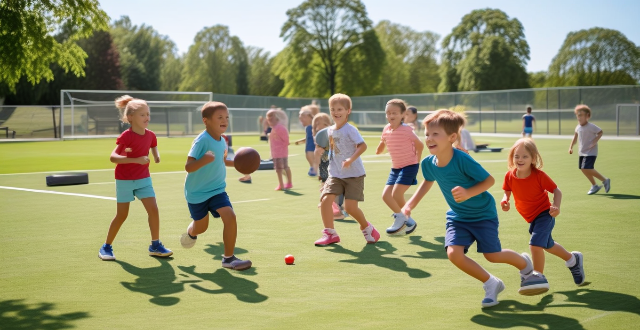
What are the potential risks associated with children specializing in one sport too early ?
Specializing in a single sport at an early age can have both advantages and disadvantages for children. While it may lead to improved skill development and potential for higher-level competition, there are also several potential risks associated with this approach. These include physical risks such as overuse injuries, burnout, and lack of cross-training benefits; psychological risks like pressure and stress, narrowed social experiences, and fear of failure; developmental risks including delayed skill development, loss of childhood, and reduced adaptability; social risks such as isolation, peer pressure, and limited life skills; and academic risks such as time management challenges and prioritization issues. To mitigate these risks, experts often recommend encouraging diverse participation in sports until late adolescence, ensuring a balanced approach between sports, school, and leisure time, providing access to mental health resources for athletes dealing with stress and pressure, and involving parents in a supportive but not pushy way.

How can parents promote healthy developmental milestones in their children ?
This article provides tips for parents on how to promote healthy developmental milestones in their children, including providing a stimulating environment, encouraging social interaction and physical activity, teaching self-care skills, and fostering independence.

How can parents effectively teach their children about safety ?
Teaching children about safety is crucial for their well-being. Parents can effectively teach their children about safety by establishing clear rules, educating them about potential dangers, practicing safety drills, encouraging open communication, and modeling safe behavior. By doing so, children will develop awareness and the ability to protect themselves from potential dangers.

How do I teach my children about saving money ?
Teaching children about saving money is a vital life skill that can benefit them throughout their lives. Here are some effective strategies to help your kids learn the value of saving: 1. Start early by introducing the concept of money and using visual aids like charts or piggy banks. 2. Set an example by demonstrating responsible financial behavior and sharing your own experiences with saving. 3. Make it fun by creating games that teach children about earning and saving money, and offering small rewards for reaching savings goals. 4. Encourage earning by encouraging part-time jobs or chores around the house, and teaching them about allowances. 5. Set goals together by establishing specific savings goals and tracking progress towards these goals. 6. Teach them about budgeting by explaining its importance and practicing budgeting together. 7. Introduce them to banking by opening a savings account for your child and explaining how interest works. 8. Discuss long-term goals like college tuition or car payments, and encourage long-term saving. 9. Teach them about credit by explaining what credit cards are and how they work, including the dangers of overspending. 10. Foster independence by encouraging financial independence and providing support as needed.

How do I provide for minor children in my estate plan ?
When it comes to estate planning, one of the most important considerations is how to provide for your minor children. Here are some steps you can take to ensure that your children are taken care of financially and emotionally after you're gone: Create a will or trust, name a guardian, establish a trust fund, consider life insurance, and make sure your beneficiaries are up-to-date.
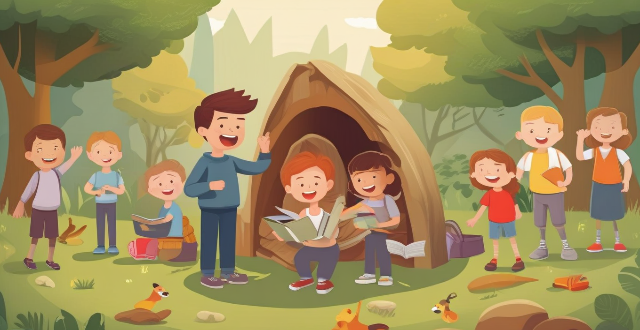
How can children be encouraged to speak up if they feel unsafe ?
The article emphasizes the importance of creating a safe and supportive environment for children to express themselves without fear of judgment or criticism. It suggests educating children about personal safety, role-playing different scenarios, and discussing potential consequences of not speaking up if they feel unsafe. The article also recommends teaching children who to trust, encouraging them to use their voice, and providing options for seeking help. Overall, it highlights the significance of empowering children to take action and advocate for their own safety.

What role do children play in combating climate change ?
The article emphasizes the pivotal role children can play in combating climate change. They can contribute through education and awareness, innovation and creativity, advocacy and action, and by making sustainable lifestyle changes. By empowering children to understand and act on climate issues, we can ensure a more sustainable future for all.

How can parents encourage their children to develop new skills through interactive activities ?
The article provides strategies for parents to encourage their children's skill development through interactive activities. It emphasizes the importance of hands-on, engaging learning experiences and offers specific tips for creating a supportive environment, involving children in planning, modeling behavior, offering praise, making learning fun, allowing for trial and error, providing practice opportunities, connecting learning to real life, and being patient and persistent. The goal is to help children become well-rounded individuals who are motivated and equipped for future challenges.

What are some of the best sports movies for children ?
Sports movies can inspire children to be active, learn teamwork, and develop a love for sports. Here are some of the best sports movies for children: The Sandlot (1993), Miracle (2004), Cool Runnings (1993), Remember the Titans (2000), The Blind Side (2009), A League of Their Own (1992), Coach Carter (2005), The Bad News Bears (1976), Space Jam (1996), Million Dollar Arm (2014).

How can parents balance work and home teaching strategies for their children ?
Parenting in the modern era is a challenging task, especially when it comes to balancing work responsibilities with home teaching strategies for children. Here are some tips: - Set priorities by identifying what is most important and allocating time accordingly. - Create a routine that provides structure and predictability for both parents and children. - Utilize technology as a tool for supplementing learning outside of traditional school hours. - Involve children in household chores to teach them valuable life skills while also freeing up more time for parents. - Seek support from others such as grandparents, babysitters, or other family members who are willing to lend a hand.

What are the psychological impacts of climate change on children ?
The psychological impacts of climate change on children can be significant and far-reaching, including anxiety and fear, a sense of helplessness, loss of connection to nature, trauma, and grief and mourning. It is essential for parents, educators, and mental health professionals to recognize and address these impacts to support the mental health and well-being of children affected by climate change.
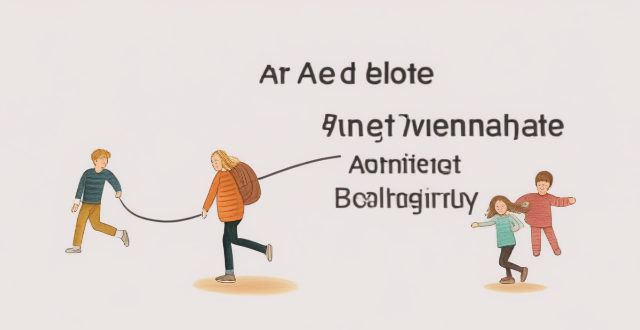
Can children get vaccinated against COVID-19 ?
Children are eligible for COVID-19 vaccination based on their age and health status. The Pfizer-BioNTech vaccine is authorized for children aged 5-11, while both the Pfizer-BioNTech and Moderna vaccines are authorized for those aged 12-17. Children with no history of severe allergic reactions or other health conditions that may increase the risk of adverse reactions to the vaccine are generally considered suitable candidates. Vaccinating children can help protect them from contracting the virus and developing symptoms, reduce the risk of severe illness and complications, and contribute to achieving herd immunity. While there are potential risks and side effects associated with vaccination, they are generally outweighed by the benefits. Parents should consult with their child's healthcare provider to determine if vaccination is appropriate for their child.

What actions should parents take to protect their children from climate change ?
Parents should educate themselves and their children on climate change, adopt sustainable living practices, support clean energy, conserve natural habitats, make healthy lifestyle choices, get involved in community initiatives, and prepare homes and communities for extreme weather events to protect their children from the impacts of climate change.
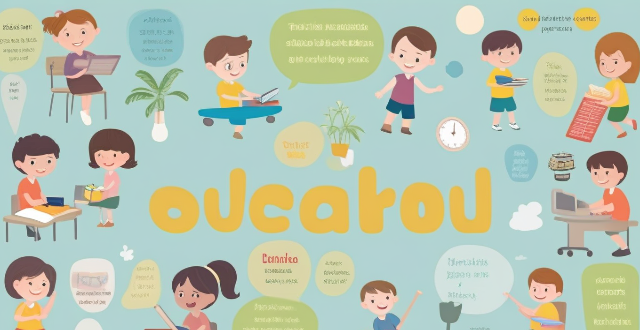
How does preschool education prepare children for kindergarten and beyond ?
Preschool education is crucial in preparing children for kindergarten and beyond. It helps them develop essential skills such as socialization, language development, cognitive development, emotional development, fine motor skills, and gross motor skills. These skills are crucial for success in kindergarten and beyond, where children will be expected to work and play with others, read, write, and communicate effectively, navigate complex social situations, form healthy relationships, and participate in physical activities. By attending preschool, children gain a strong foundation for future learning and success in all areas of life.
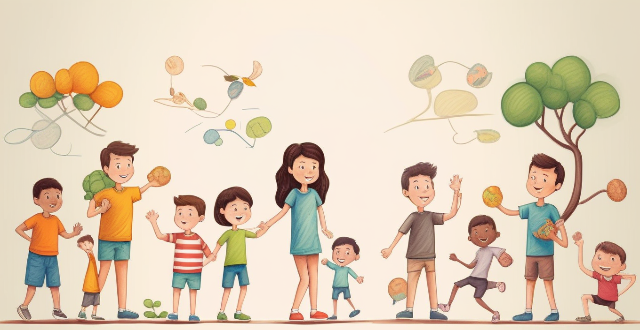
How does exercise influence social skills in children ?
Exercise plays a crucial role in shaping children's social skills by enhancing communication, empathy, emotional intelligence, resilience, problem-solving abilities, healthy risk-taking, and leadership skills. Physical activity helps children build self-confidence, promotes teamwork, develops empathy, enhances emotional intelligence, increases resilience, enhances problem-solving abilities, encourages healthy risk-taking, and fosters leadership skills. These skills are essential for establishing positive relationships with peers and contributing to their communities. Therefore, it is imperative to encourage children to engage in regular exercise to support their overall development and success in life.
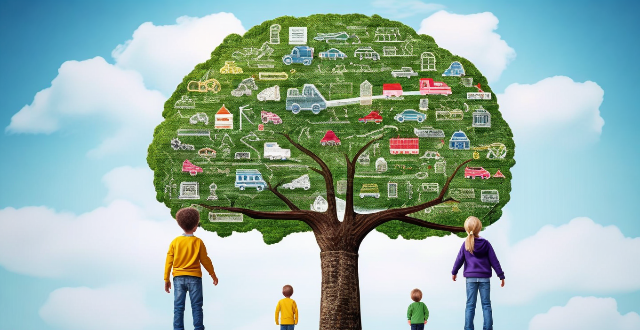
What are the benefits of teaching children about climate change ?
Teaching children about climate change is crucial for their future, empowering them to take action and make a difference. It enhances their awareness, critical thinking skills, environmental stewardship, innovation, preparation for future careers, empathy, responsibility, healthy habits, resilience, and interest in science and technology. This education can lead to informed decision-making, problem-solving abilities, responsible behavior towards the environment, and a sense of global citizenship. By teaching children about climate change, we are preparing them to confront one of the most significant challenges facing our planet.